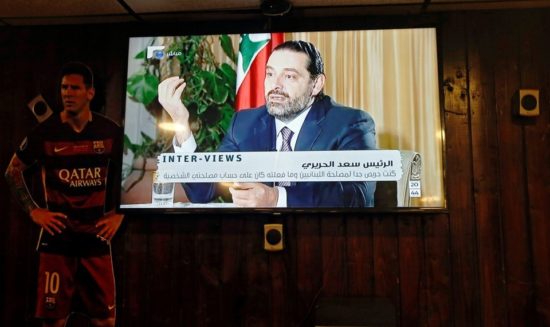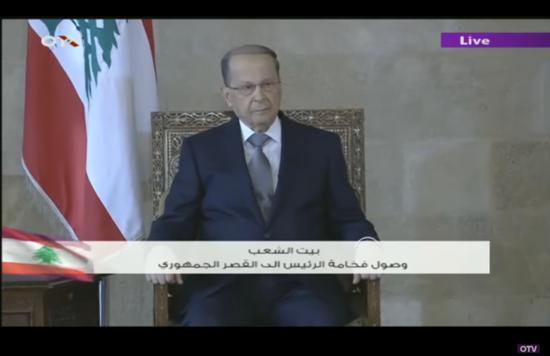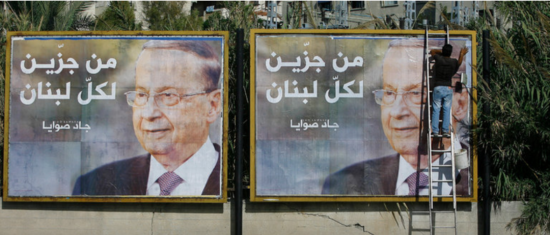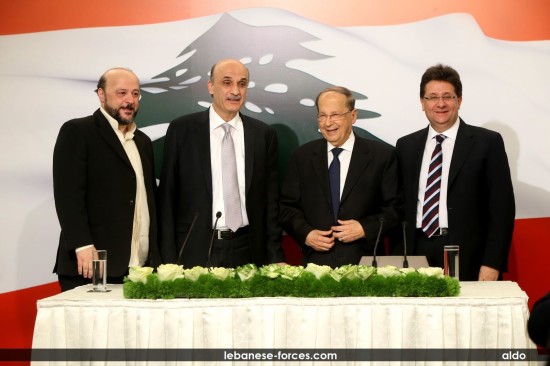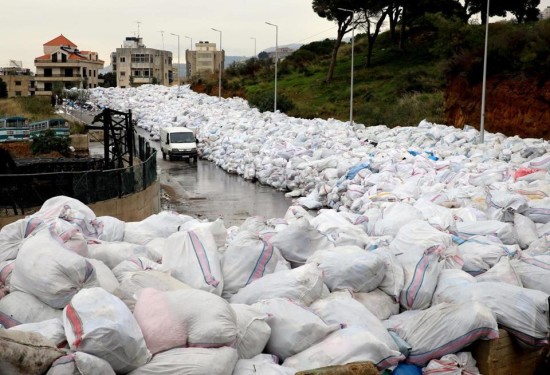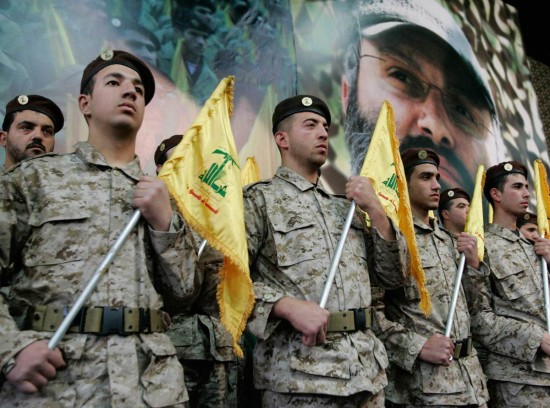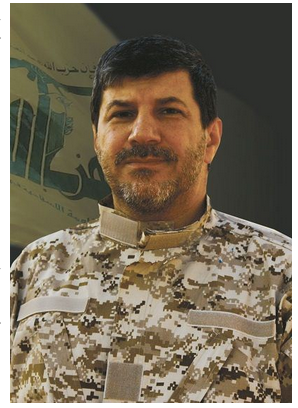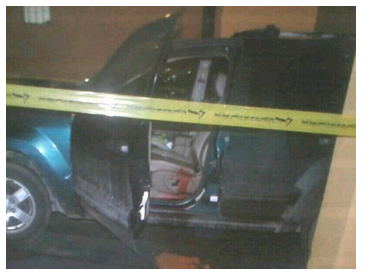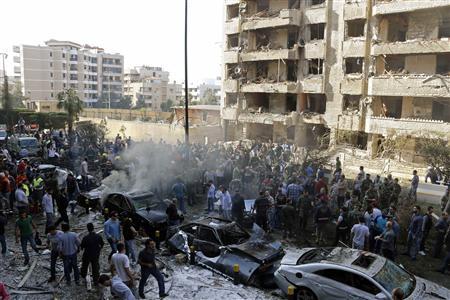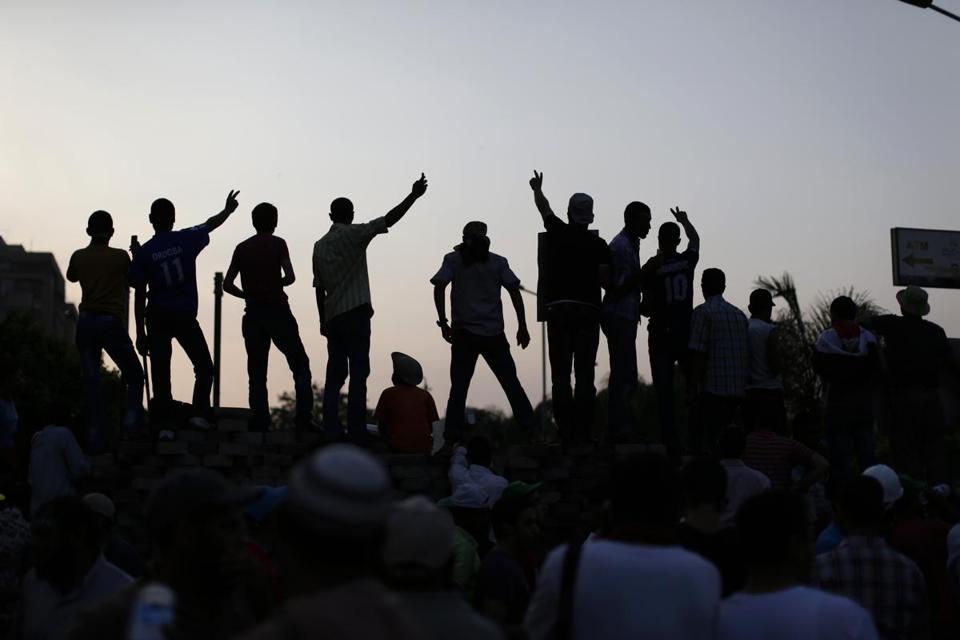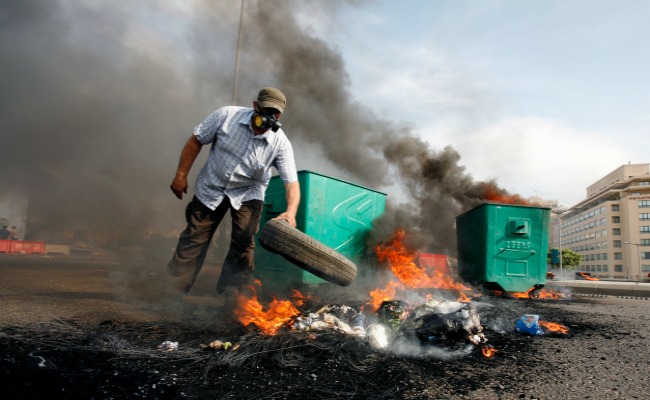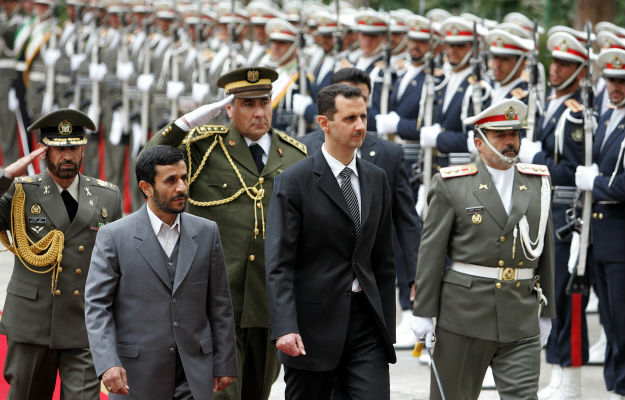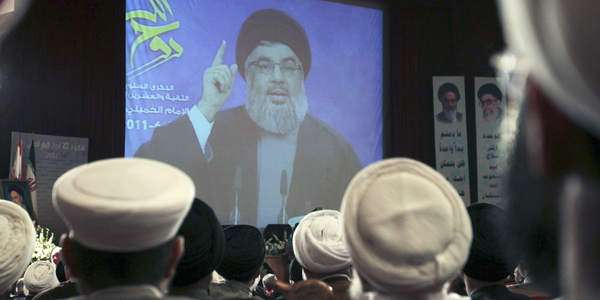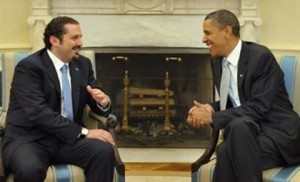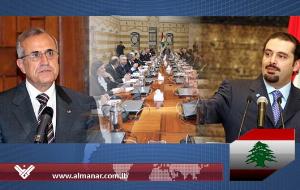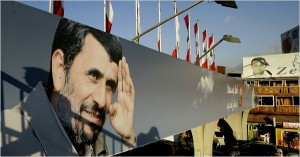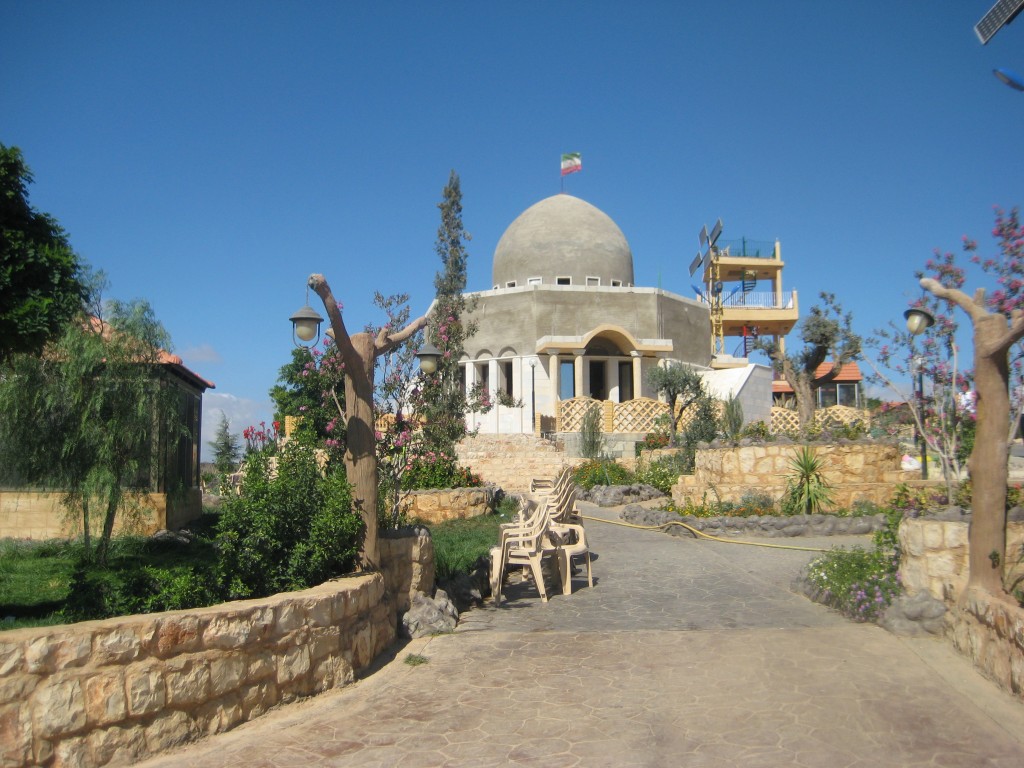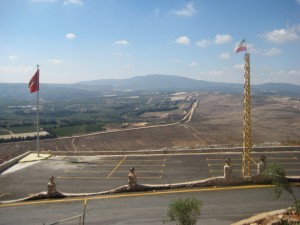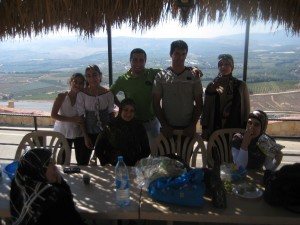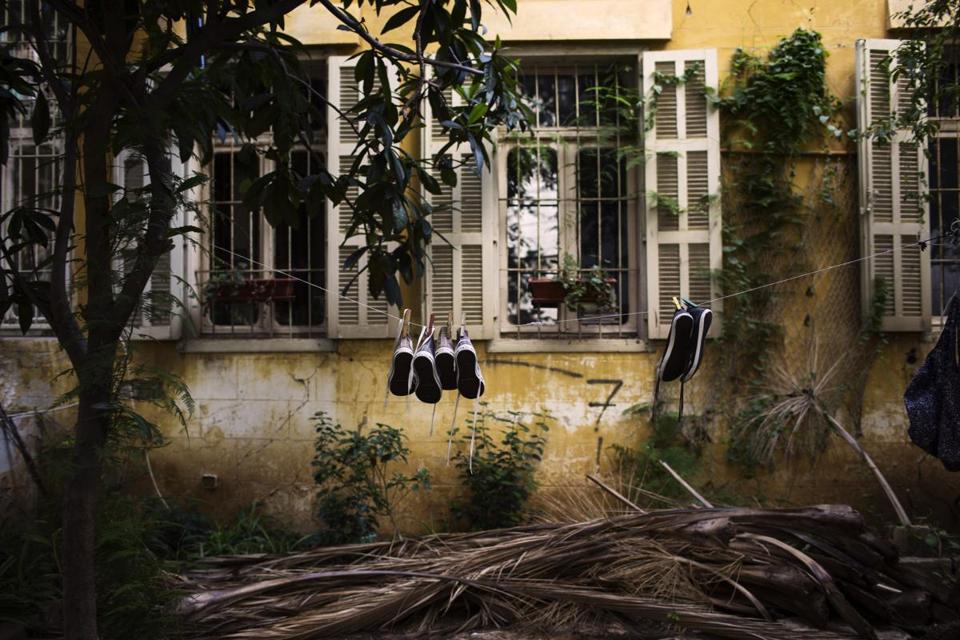
A terraced garden outside Mansion in Beirut. Photo: Diego Ibarra Sanchez for The Boston Globe.
[Originally published in The Boston Globe Ideas.]
BEIRUT — As a symbol of a lost era in a region full of them, Beirut stands apart. For generations it thrived as a center of culture, commerce, and education, until the 16-year Lebanese civil war fragmented the city’s diverse population and shelled its vitality into rubble.
The war ended in 1991, and today Beirut is mostly peaceful. Some of its glamour and wealth have started to return. Dazzlingly dressed Lebanese fill gallery openings; boutique wineries do a brisk business. Glass towers have sprung up around the new marina.
But in many ways, Beirut is still a failed city. Hobbled by ubiquitous corruption, rampant criminality, and the legacy of sectarian militias, Beirut still doesn’t have any of the basic amenities of urban life, like traffic police, a planning board, even a functioning sewer, water, or electrical system. It is no longer a business capital; the money on display here was mostly made somewhere else. The war-shattered UNESCO building squats in the heart of the city like a crash-landed spaceship. To the west, two shell-pocked skyscrapers mark the horizon, both them uninhabited since the civil war broke out in 1975.
Most obviously, Beirut needs to attract investment and solve its infrastructure problems. But to truly revitalize the region, it will need to do more than that: It will need to recapture the cultural energy that long marked Beirut as the intellectual capital of the Arab world. A small city that welcomed big thinkers, it was historically home to writers, philosophers, political dissidents, artists, and other creative types from around the region. That, more than any of the trappings of wealth and celebrity, made it a beacon.
This is where Ghassan Maasri comes in, or hopes to. Maasri is an architect who grew up amid the rubble piles, collapsing old houses, and construction sites of post-shelling Beirut. Today, he is two years into an experiment called “Mansion.”
Picturesque old family villas still dot the city, often in disrepair. More and more are being torn down to make way for profitable condos and office towers. Maasri convinced the owner of one to to let him create a nonprofit experimental collective there. His idea was to use it to foster a community of “Beirut city users,” ambitious professionals as well as creative artists, who would use the space to launch projects that make the city a better place to live.
“I want to be able to meet artists on the street,” Maasri says. “The process of producing art is very important for the modern city. Filmmakers, theater, fine artists, architects, designers—these are the things that make a city livable or interesting.”
Maasri’s Mansion collective has emerged as a nucleus for engaged Beirutis, and a fixture on the city’s cultural circuit. It’s too early to measure whether the initiative will help revive Beirut as an intellectual and cultural center, but Mansion is now part of a small ecosystem of institutions trying to redirect the way the city works. Nearby is another collective that’s trying to serve as incubator for Lebanese startups; other cultural organizations are trying to promote mainstream audiences for local filmmakers and artists. On the preservation front, a well-known painter has launched a campaign to save Rose House, an iconic mansion overlooking the sea from West Beirut’s bluffs.
Elsewhere in the world today it’s taken for granted that cities are engines for culture and growth, a place for creativity, money, and smarts to meet. Authoritarian rule has greatly diminished those expectations in the Middle East. If Mansion works, it will be a step toward restoring that spirit to a region where it’s been gutted by war and political stasis.
“I’m trying to find a way so that people can produce things inside the city,” Maasri says. “It’s an experiment. Let’s see how it goes.”
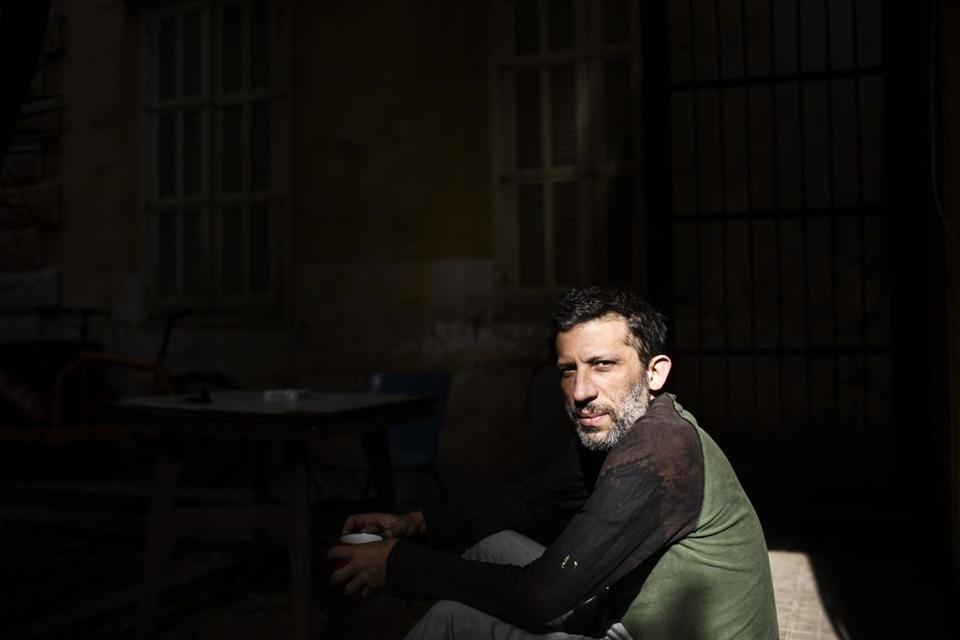
Ghassan Maasari, an architect who grew up among the rubble of the city, convinced the home’s owner to to let him create a nonprofit experimental collective. Photo: Diego Ibarra Sanchez for The Boston Globe.
IN ITS PRIME, Beirut was the kind of rich, important, stimulating place that today would be called a global city. The city supported daily newspapers in Arabic, French, and English. The most ambitious students in the region filled its universities. Its bankers were high-powered and urbane.
It was a city of beautiful alleys and an open waterfront, with an intimacy beloved by its admirers. The Rolling Stones liked to hang out here; an entire book was written about the writers, spies, and artists who orbited around one bar, in the St. George Hotel.
Money, not culture, has driven Beirut’s rebound since the end of the civil war. Political infighting has frozen the effort to fix the St. George, whose ruins blight the edge of the new marina, a soulless anyplace that’s hard to distinguish from Santa Monica. The old downtown, rebuilt by a politically connected developer, is an unused pedestrian area guarded by an army of private security officers. Martyr’s Square, the historic center, remains a sprawling unpaved parking lot because of a property standoff. The one major park that survived the war has been closed to the public ever since.
Warlords reached a compromise to end the war: Communities would coexist peacefully amid a low-grade simmering anarchy. As long as there was no national authority, no group could use it to dominate the others. As a result, Beirut is a city with few rules and no enforcement of building codes.
Maasri’s insight was to realize the anarchy might also have created a space to try something new. Now 42, he moved to Beirut as a child in the thick of the civil war; his family was fleeing the fighting in the nearby mountains. As the city came back to life in the 1990s, Maasri was horrified by the sheer waste. Artists were fleeing the city in search of affordable studio space, while thousands of buildings in prime locations sat empty and decaying.
Maasri first tried turning rental properties into communal studios, at cost, but found it too expensive. He won grant money to establish short-term artist-in-residence projects in abandoned properties in his hometown of Aley. With an eye to doing the same in Beirut, he wandered the city on foot, scoping out dozens of dilapidated Ottoman mansions that he thought would make an ideal space for a cultural collective. Every time he tried to contact an owner, he said, “I could never get past the lawyer.”
Finally in 2012 he got lucky. The owner of a grand three-story villa on Abdulkader Street was willing to meet Maasri directly, without any intermediaries. He had kept up his family’s 80-year-old Ottoman-style villa better than most; it was decrepit, but still had its doors, windows, and roof, which meant that unlike most of the similar homes around the city, it was inhabitable—if not comfortable. He was willing to loan it to Maasri for five years, free of charge.
The house couldn’t have been more centrally located: It was a few hundred yards from the Serail, the Ottoman barracks that now serve as the headquarters of the Lebanese government. Typically for modern Beirut, it is surrounded by four brand-new condo towers, an illegal squat, and a parking lot.
Maasri invited architects, artists, and people whom he loosely defined as urbanists to come populate it and fix it up. They cleared the vines and brush that had overrun the yard and were spilling into the street. They strung bare light bulbs from the ceiling, and turned the grand ground-floor entry hall into communal space that could host lectures, panel discussions, film screenings, and musical performances.
On a recent Saturday, a children’s event called “Mini Mansion” screened Charlie Chaplin movies. A party that evening promoted recycled glass. Earlier that week, Mansion had hosted a series of discussions about urban renewal, with panelists from Europe and the Middle East. There’s a design and architecture studio on the top floor, a silk-screen workshop, and a film archive. Upstairs, artists work on paintings and sculptures in their studios. A bike messaging startup called Deghri (Direct in Arabic) has its headquarters at Mansion, and is trying to establish bike repair clinics and a recycle-a-bike program for Beirut.
Residents pay a nominal rent to help cover water, electricity, food, and repairs. Most importantly, they are required to use their space, and ideally intended to bring even more people in. An urban gardening initiative was supposed to start a pilot program on Mansion’s roof, but never followed through; Maasri gave their spot to someone else.
Maasri himself lives in the crumbling but still grand three-story mansion. To make sure he isn’t breaking any occupancy rules, he has been officially designated the building’s doorman.
MANSION’S FOUNDER wants its spirit to spill beyond its walls. In January, Maasri is launching an “Inquisitive Citizens Urban Club” which will convene anyone interested in Beirut for a three-month study of public space in the city, with the ultimate goal of catalyzing urban activism. Other cities in Europe and United States have plenty of civic-minded urbanist groups. Here, however, it is groundbreaking.
The common theme running through Mansion’s projects is a hunger to reclaim public space. That’s a politically charged project in a city where big money drives the major development projects, and where the lack of public space is inextricably connected to the erosion of political and civic rights for citizens.
Beirut is the forefront of many interlocking debates about cities and the way people live in them. And that debate is critical right now in the Arab world. Increasingly, it has become a region of cities, as the population abandons the countryside in search of work and education. Yet the role of those cities is in flux.
Traditionally, Arab cities were cosmopolitan commercial and trading hubs, open zones with mixed populations. Today, the most dynamic examples of urban vitality in the region are the tightly controlled metropolises of Dubai and Abu Dhabi, wealthy cities with limited freedom and an economic model based on oil wealth, finance, and omnipotent royal families. A revitalized Beirut, with an openness to art, public initiatives, and intellectual culture, could be an alternative.
“If I have an idea, I don’t need money or approval to experiment,” says Ayssar Arida, an architect and urban designer who grew up in Lebanon and returned to Beirut two years ago after more than a decade in London and Paris. He was attracted to the freedom from authority. “Beirut is fantastic thinking matter,” he says. “It’s not totally gone to the dogs yet.”
His wife, French-Iraqi curator Sabine de Maussion, works out of a studio at Mansion, where the couple collaborated on their latest invention: a high-end construction toy called Urbacraft. Mansion is littered with conceptual models made from Urbacraft blocks (imagine an Erector set crossed with Lego, for design nerds).
Mansion can sound a little like a party for cool, arty elites. But that is not Maasri’s goal; he is wary of drawing shallow, trendy support. He wants people who are committed and willing to work to save a building, as a way of learning how to save the city around it. For now, Mansion is thriving, and it is his hope to leave the building and its neighborhood better off than he found them. Although he is hopeful that the owner will be impressed enough to extend the experiment, he won’t mind if three years from now he has to find a new home for Mansion.
To Maasri and his colleagues, it’s not buildings that make a city, but people who create things. They’re sad that so much of Beirut’s architectural heritage has been torn down in the rush to rebuild, but they have set their sights on something harder to define than preservation. If they can figure out how to keep creating in Beirut without depending on grant money or wealthy patrons, he believes they can bring back the best thing about Beirut—even if the glory days of its architecture have passed.
